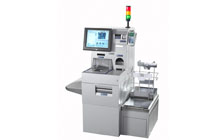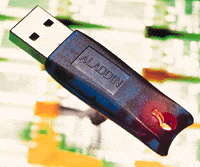Microsoft deserves some blame for the rapidly spreading Web virus
Published:
20 August 2003 y., Wednesday
Microsoft deserves some blame for the rapidly spreading Web virus -- but so do network administrators, ISPs, small businesses, and individual PC users. Compared to the images of sweaty Gothamites trudging across the Brooklyn Bridge in 95-degree heat during the massive power blackout, the MS Blaster worm now seems like a walk in the park.
Still, the latest worm to clog corporate networks and kludge the Net wreaked plenty of havoc in its own right. Internet security companies estimated losses from both downtime and wasted manhours in the hundreds of millions of dollars for U.S. companies. And Blaster-infected machines significantly impacted the Internet. The stream of bogus requests generated by the worm slowed DNS (domain name system) servers that act as the phone directories of the Internet. Compromised computers jammed up networks ranging from BMW in Germany to the Maryland Motor Vehicles Dept.
. Like the Slammer and CodeRed worms before it, Blaster targeted computers running Microsoft Windows 2000 and Windows XP operating systems. The worm carries a small program designed to exploit a chink in Redmond's digital armor and insert a file deep into the operating system in the Windows registry system. The registry is a database where the most basic rules that govern how a Windows machine behaves are stored and categorized.
Once Blaster inhabits the registry, it causes computers to restart without warning and to spew out thousands of connection requests per minute, in search of other machines to infect. The sheer volume of traffic caused enough digital noise to bog down networks.
Šaltinis:
businessweek.com
Copying, publishing, announcing any information from the News.lt portal without written permission of News.lt editorial office is prohibited.
The most popular articles
Software company announced new structure_ of it_s business.
more »
 Gemalto teaming up with two banking technology leaders to help banks in Venezuela move to a new, high-tech smart credit card that will better protect their customers from fraud and identity theft.
more »
Gemalto teaming up with two banking technology leaders to help banks in Venezuela move to a new, high-tech smart credit card that will better protect their customers from fraud and identity theft.
more »
 The new Bull HPC-FF1 supercomputer with 100 Teraflops-capacity will host applications for the European Union Fusion community.
more »
The new Bull HPC-FF1 supercomputer with 100 Teraflops-capacity will host applications for the European Union Fusion community.
more »
 Gemalto, the world leader in digital security today announced its revenue for the full year and fourth quarter of 2008.
more »
Gemalto, the world leader in digital security today announced its revenue for the full year and fourth quarter of 2008.
more »
 Wincor World 2009, which was held in Paderborn from January 20 to 22, has once more proven to be the place where experts from retail banking and retailers gather, even in times of economic crisis.
more »
Wincor World 2009, which was held in Paderborn from January 20 to 22, has once more proven to be the place where experts from retail banking and retailers gather, even in times of economic crisis.
more »
 Motorola Inc. announced it has been recognized with one of the world’s foremost industrial design honors, an iF product design award.
more »
Motorola Inc. announced it has been recognized with one of the world’s foremost industrial design honors, an iF product design award.
more »
 The EU’s antiterrorism coordinator, Gilles de Kerchove, and Interpol representatives, will brief MEPs on Thursday about progress in combating terrorism.
more »
The EU’s antiterrorism coordinator, Gilles de Kerchove, and Interpol representatives, will brief MEPs on Thursday about progress in combating terrorism.
more »
 The Tesco retail chain in Poland has chosen Wincor Nixdorf to maintain its 4,600-strong estate of POS systems and servers from different vendors.
more »
The Tesco retail chain in Poland has chosen Wincor Nixdorf to maintain its 4,600-strong estate of POS systems and servers from different vendors.
more »
 Gemalto, the world leader in digital security, announces it will deliver an additional one million of its latest generation electronic ID cards for citizens and residents of the Kingdom of Bahrain.
more »
Gemalto, the world leader in digital security, announces it will deliver an additional one million of its latest generation electronic ID cards for citizens and residents of the Kingdom of Bahrain.
more »
 CAXA increases sales and reduces costs with Aladdin HASP SRM.
more »
CAXA increases sales and reduces costs with Aladdin HASP SRM.
more »
 Bull extends the deployment of Comptel Dynamic OSS, at the heart of the telco's information systems.
more »
Bull extends the deployment of Comptel Dynamic OSS, at the heart of the telco's information systems.
more »